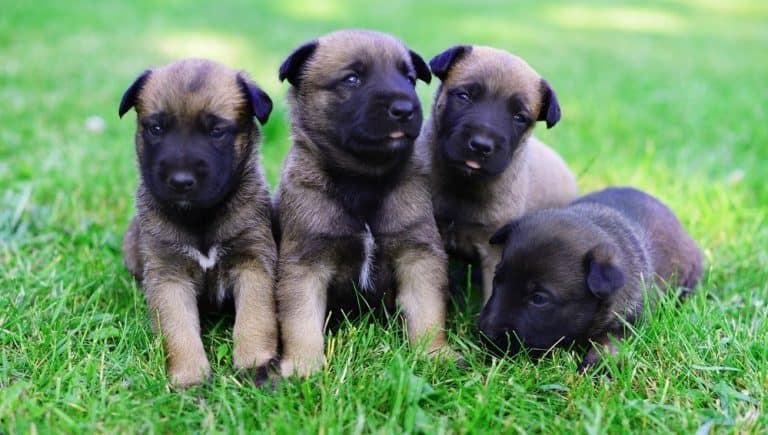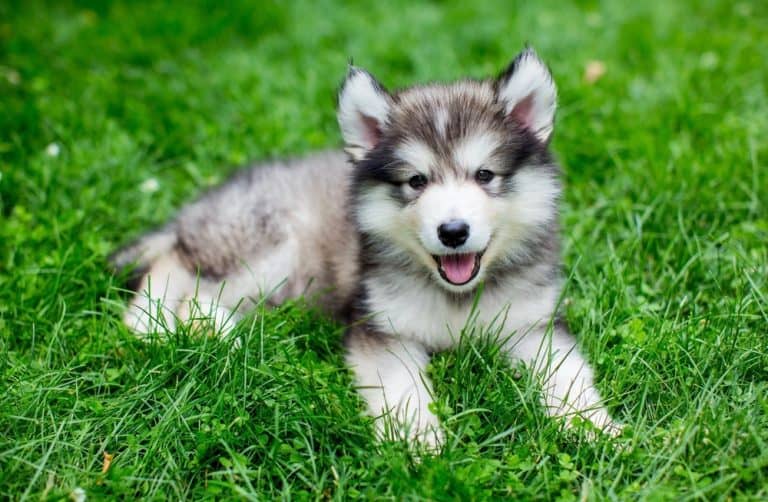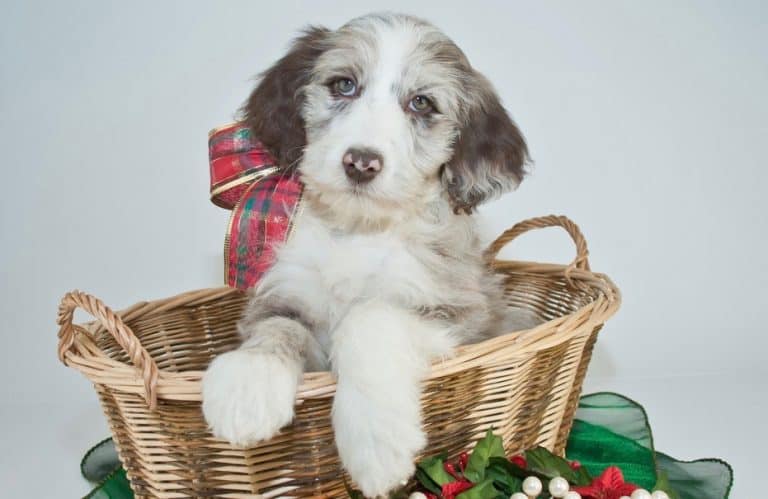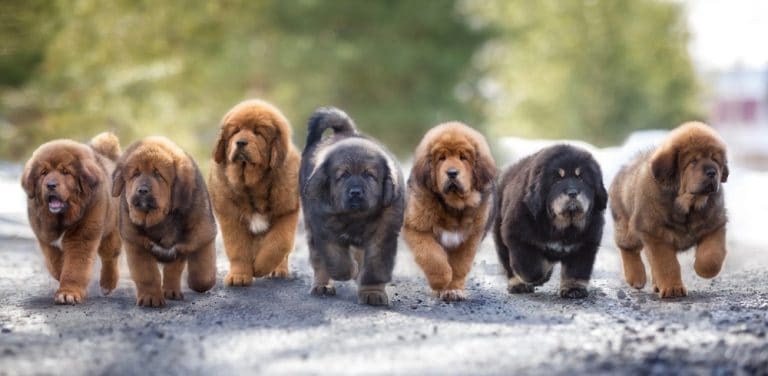Why Is My Dog Eating Slower Than Usual? Should You Worry?
Every owner can attest to just how overly excited their pet dog gets when they catch a sense that mealtime is near.
Their tails start wagging a little faster, their drool starts forming a little quicker, and they start to hover around their food bowl like it’s the only thing in the world.
For this reason, it can raise alarm when a dog suddenly loses their appetite and starts to eat slower (or not at all) as a result. Dog owners are highly tuned into their dog’s habits, which is why appetite loss is such a big deal for them.
This article will highlight the many reasons why your dog is eating slower than usual. Some of them are more serious than others but every possibility should be on the table when your dog’s health is at stake.
What Are Some Causes For A Dog’s Loss Of Appetite?
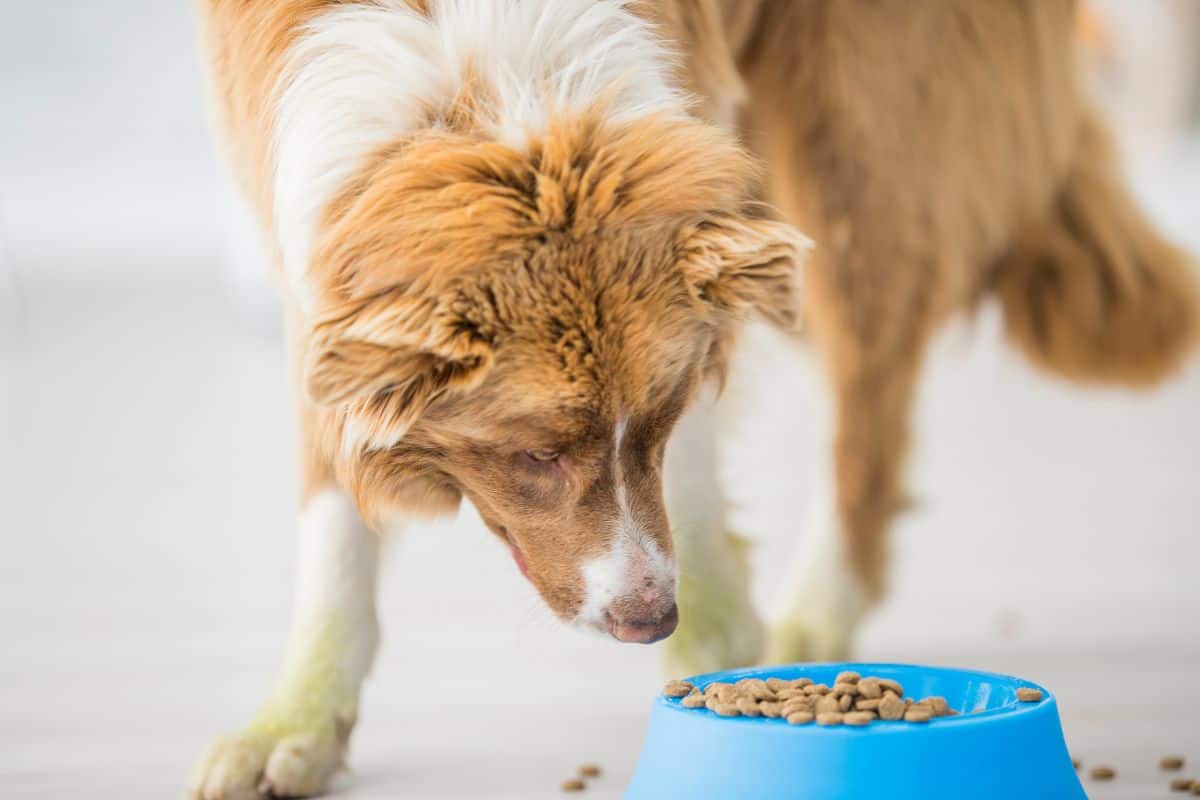
Let’s get straight into the reason why you’re here with the why behind a dog’s loss of appetite. Unfortunately, there is not a blanket cause for dogs eating slower than usual.
However, once you come to know each of the possible causes, you will be able to narrow down the field by seeing which ones are relatable to your dog’s circumstances and which are not.
If you are unable to correctly identify the cause yourself, a trip to the vet may be necessary. As they always say “it’s better to be safe than sorry”, and nothing could be more true when it comes to your four-legged best friend.
Age
If your dog is getting on in years and you have noticed a gradual drop in appetite, there’s a chance that their age is the cause. Just like humans, dogs slow down as they grow older which means they are expending less energy than when they were in their youth.
This reduction in exercise and output can have a direct influence on the amount that they eat and the speed at which they eat.
Their senses that are connected to eating like smell and taste, can also alter or even decrease. A change in senses can have an impact on the types of food that they desire and the excitable state that they used to get themselves into before mealtime.
Stress
A lot of people think that dogs have an easy life. No work, all play, food brought to them on the daily – in a lot of ways it is true, dogs do have pretty sweet lives.
However, they are also highly sensitive creatures, often with high levels of intelligence. And with great intelligence comes the ability to feel emotion, good and bad.
In fact, studies have proven that stress is the number one leading cause of a sudden change in appetite in dogs. The stress that a dog feels can be brought on by a big change in their lives, or something minor that has changed their daily routine. There is no rhyme or reason why dogs feel stressed.
A big change in a dog’s life could be moving house. Moving house is proven to be one of the most stressful experiences in a person’s life, so you just know it’s not fun for your pooch either.
Especially because they have no idea where you’re going, or why you’re going there.
A minor example of a stress-inducing scenario for a dog could be a change in dog food. Especially as dogs grow older, they become suckers for routine.
The saying “you can’t teach an old dog new tricks” didn’t come from nowhere. Dogs don’t like change, so if they are suddenly served a different menu every day, a lot of them aren’t going to like it.
Medical Condition
Diagnosed or otherwise, a medical condition is another common cause of a loss of appetite in dogs. Maybe they have an infection in their mouth that is causing them pain so the last thing that they want to do is eat.
Or, they could have a more serious issue with their health like a gastrointestinal disease.
They could also be suffering from an undetected injury that is taking up a lot of energy and cutting their appetite as a result.
There are a million and one possibly injuries and sicknesses that can affect the way a dog eats, and how much they eat. The best thing that you can do is take them to the vet for a proper checkup if you have cause for alarm.
Vaccination
Vaccinations can make dogs feel unwell for a period of time, normally 1-2 days top. If a vaccine is making them feel nauseous, weak, or queasy, there is a good chance this could be the reason for a sudden change in their eating habits.
We can all relate to vaccinations taking the wind from our sails for a short while. There’s no need to worry too much if your dog doesn’t eat much in the hours straight after their vaccinations.
This should pass quite quickly for most dogs. If they still aren’t acting and eating normally a few days later, then this is when you should start asking questions.
Upset Stomach
Dogs are known to eat all kinds of questionable stuff that their noses lead them to. This “nothing is off the table” mentality means they are bound to chow down on something particularly putrid that’s going to give them an upset stomach.
Eating something that they shouldn’t have can either make them feel incredibly sick or just mildly ill. Though one thing is for certain, and that is their appetite will become nonexistent while their body works through the thing that they thought was food.
Two obvious signs of sickness in a dog are vomiting and diarrhea. If their bodies aren’t capable of fighting off the nasties on their own, then a course of antibiotics could be on the cards.
Food Fatigue
The complete reverse of when a dog’s stress levels are heightened by a sudden change in diet, food fatigue is when a dog grows tired of its food.
If you notice that your dog is starting to lose interest in mealtime, food fatigue could be the cause.
Luckily, this is an easy one to fix. All you have to do is switch up their menu for something a little different and exciting and see if they like it.
Variety is the spice of life and some dogs enjoy different flavors on their palette. Think of them as the “Ratatouilles” of the canine world.
If your pooch has started giving you the stink eye when presented with their dinner, you know something is up.
If they amble through their meal like it’s an arduous event, you know something is seriously up, and a swift menu change could be exactly what the wannabe chef desires.
Overfeeding
If you are one of the millions of dog owners who love to treat their beloved best friend to human food, this cause is for you. Overfeeding is a very real problem for dogs. Why? Because just like humans, older dogs can stack on the pounds like no doggie’s business.
Another way to overfeed your dog is to give them countless doggie treats throughout the day. Dog treats are made to be delicious (for dogs), there is no question there.
The problem is that a lot of dog treats are also high in fat. If you are feeding your dog a whole pack of treats every day because they are just such a good boy/ girl, this is a one-way ticket to weight gain.
What feeding a dog too many treats and human food can also do is make them lose interest in their actual mealtime food.
Keeping your dog healthy and interested in food is essential for their happiness and longevity, so maybe skip feeding them the leftovers after every single meal if they are showing signs of possible overfeeding.
What’s The Normal Eating Pace Of Dogs?
The rate at which dogs eat is sadly not a quantifiable one. Between different breeds, ages, and personalities, it is impossible to say what is considered “normal” for a dog’s eating pace. One thing is for certain though, most dogs do not hang about when it comes to mealtime.
Just like elderly dogs, really young puppies may not be so rapid in their eating habits. Once they hit adolescence and for a good portion of their adult life, most dogs will put away their dinner in rapid fire.
This means it is easier to tell when an adolescent/ adult dog has a sudden change in appetite. If they are still a puppy who maybe doesn’t shovel their food in quite the same way anyways, a change may be harder to spot.
The best thing that you can do is periodically monitor your dog at mealtime and see if you notice anything out of the ordinary.
When Should You Start To Worry About Your Dog’s Eating?
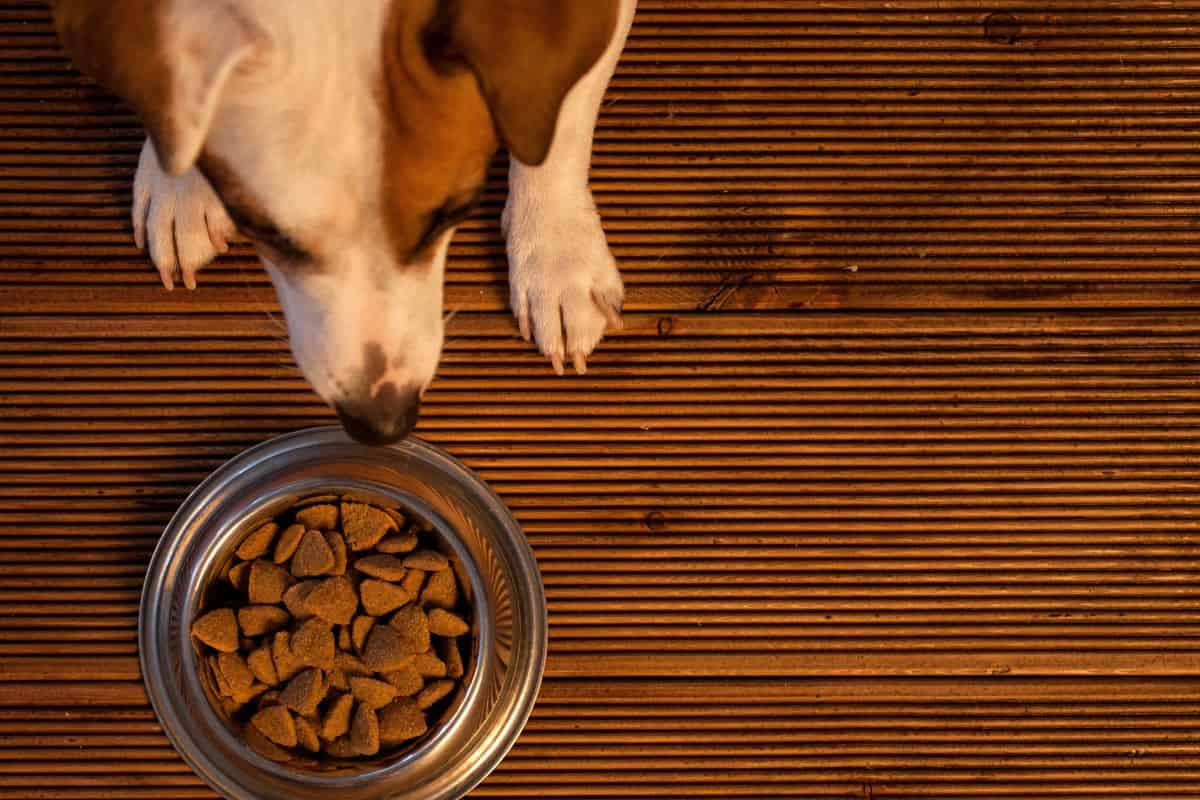
If your dog has suddenly lost interest in food it makes total sense why you might not be feeling great about this.
However, as the multitude of causes above show, a loss of appetite in your dog could be put down to something as simple as a desire for a change.
If their loss in appetite is persisting and you’ve ruled out the less serious possibilities, it could be a smart idea to stop by your local vet for a checkup.
Having a medical professional look over your dog will help to put your mind at ease and make you feel more comfortable about the situation.
A reason for hastening the decision to see a vet would be if your dog is showing signs of pain at the same time as they are disinterested in food.
Pain indicators like paint, whining, and restlessness are clear indications that there is something more serious going on with your dog.
Why Is My Puppy Eating Slower Than Usual?
Puppies that have hit their stride in their ability to put away food have incredibly unpredictable eating habits. One minute they will be chowing down their food like it’s the last meal on earth and the next they could be chasing after a bird that they noticed flying by.
Distractions are aplenty for puppies so if you notice them eating slower as a result of external forces this is no cause for alarm.
If, however, you start to notice a pattern forming where they’re consistently eating slower than usual, this may be an indicator that something is wrong.
Luckily, as puppies age, their eating habits will become a lot more predictable. This could happen at any age, but for most dogs, it is usually between the ages of one and two.
How To Get Your Dog To Eat Faster?
If you are concerned about your dog’s eating habits and they are showing clear signs of eating slower, there are things that you can do to try and rectify the problem.
However, before you try these methods for making your dog eat faster, you really do need to rule out something more serious.
Doing a self-examination of your dog for any signs of an undetected medical condition, sickness, or injury is very important.
If you are unsatisfied with your self-examination and you feel like something more serious could be causing your dog to eat slower than usual, give your vet a call.
They will be able to undertake a more thorough examination of your dog and rule out anything seriously wrong with them. Once you are certain there’s nothing serious at play, then the methods listed below could be the answer.
Minimize Distractions
Whether it is another dog, your kids, or something that’s out of the ordinary in the garden, it is a good idea to minimize these distractions and see if it makes a difference to your dog’s mealtime issue.
Make Food More Appealing
Jazzing up your dog’s food with a delicious meal topper could be just the thing for getting them interested in what’s in their dog bowl again.
Take Food Bowl Away after Mealtime
By removing the dog bowl after mealtime, your dog will understand that there is a timeframe for how long they can eat. This may help them get a wriggle on when presented with their dinner.
Conclusion
So there you have it. You are now all the wiser on the possible reasons behind your dog eating slower than usual.
We hope this article has been an insightful one that will help you to understand your dog’s sudden loss of appetite, and take the measures needed to see them whoofing down their dinner once again.


